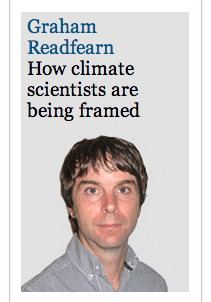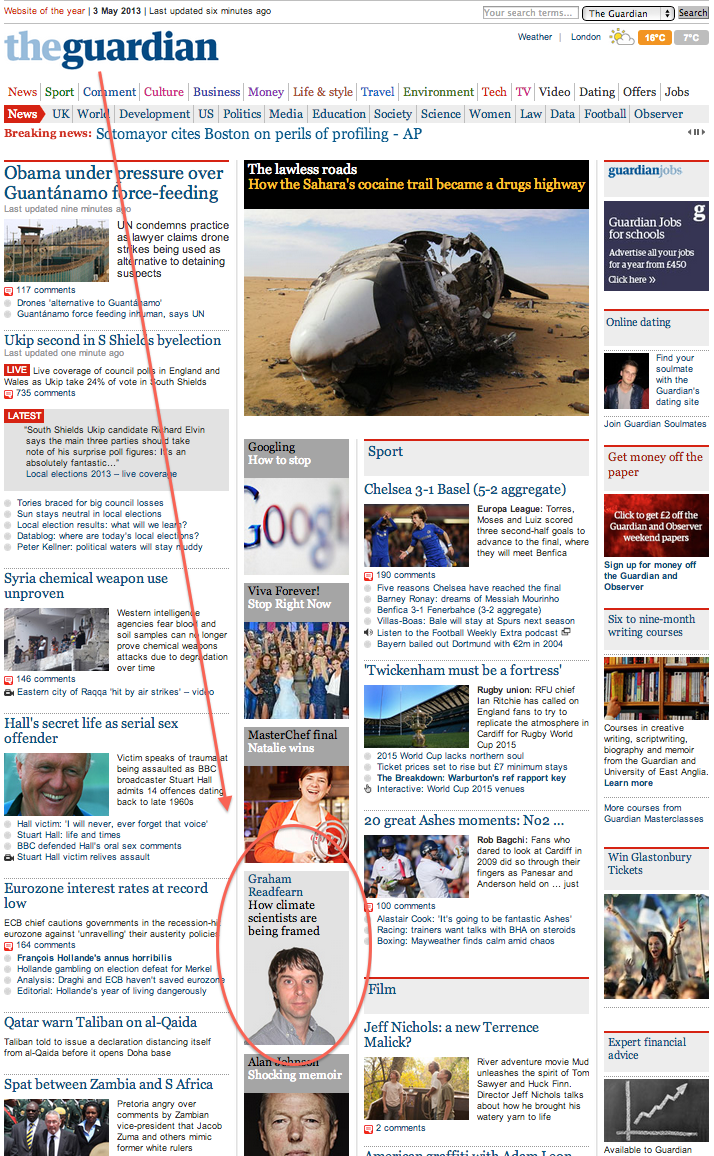On his first day joining the Guardian Environment blog, DeSmogger Graham Readfearn’s first post – How climate scientists are being framed – quickly gained traction and ended up featured on the Guardian’s UK front page.
Bookmark the Environment Guardian blog, and keep your eyes peeled for Graham’s column, called Planet Oz.
Send him some praise on Twitter @readfearn (and follow him if you don’t already).
Congratulations Graham!
Subscribe to our newsletter
Stay up to date with DeSmog news and alerts








